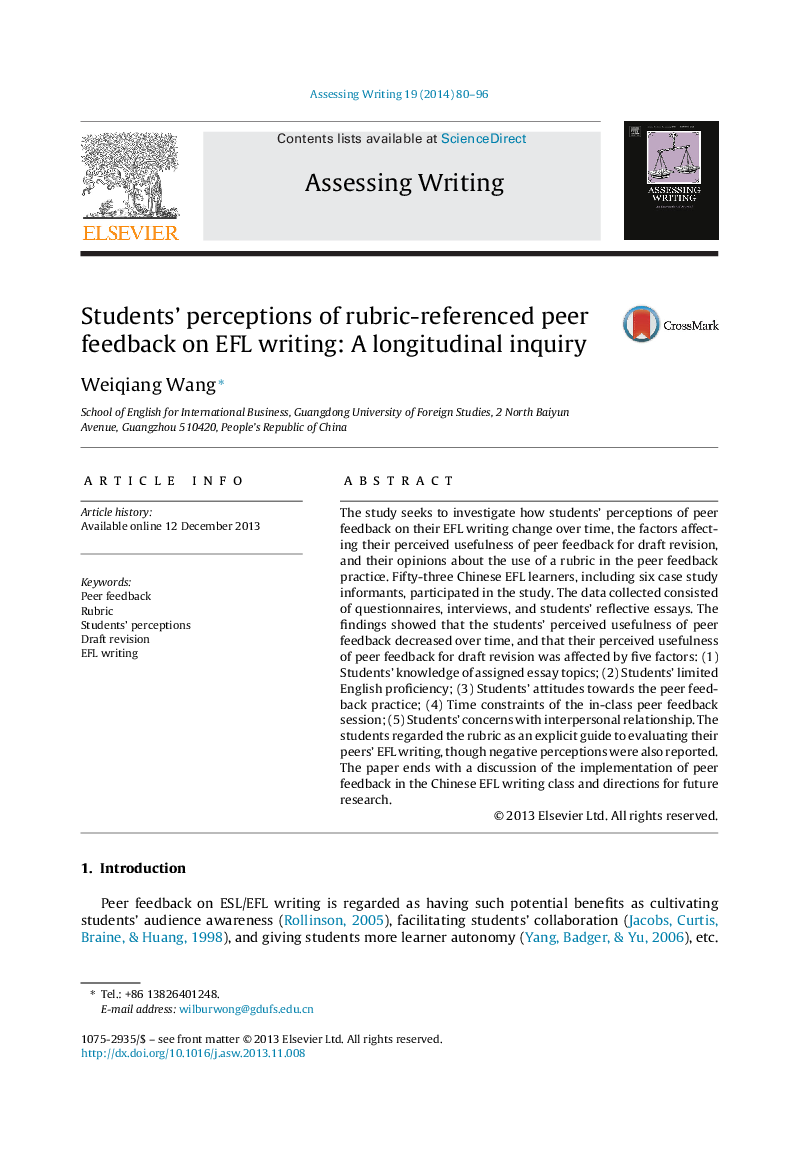| Article ID | Journal | Published Year | Pages | File Type |
|---|---|---|---|---|
| 344266 | Assessing Writing | 2014 | 17 Pages |
•Students’ perceived usefulness of peer feedback on EFL writing decreased over time.•Five factors were found to affect students’ perceived usefulness of peer feedback.•Two factors were their limited topical knowledge and English proficiency.•The other three factors were related to the implementation of peer feedback.•Mostly positive perceptions of the rubric's role in peer feedback were reported.
The study seeks to investigate how students’ perceptions of peer feedback on their EFL writing change over time, the factors affecting their perceived usefulness of peer feedback for draft revision, and their opinions about the use of a rubric in the peer feedback practice. Fifty-three Chinese EFL learners, including six case study informants, participated in the study. The data collected consisted of questionnaires, interviews, and students’ reflective essays. The findings showed that the students’ perceived usefulness of peer feedback decreased over time, and that their perceived usefulness of peer feedback for draft revision was affected by five factors: (1) Students’ knowledge of assigned essay topics; (2) Students’ limited English proficiency; (3) Students’ attitudes towards the peer feedback practice; (4) Time constraints of the in-class peer feedback session; (5) Students’ concerns with interpersonal relationship. The students regarded the rubric as an explicit guide to evaluating their peers’ EFL writing, though negative perceptions were also reported. The paper ends with a discussion of the implementation of peer feedback in the Chinese EFL writing class and directions for future research.
